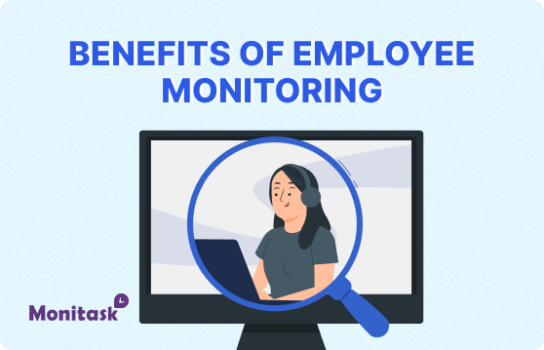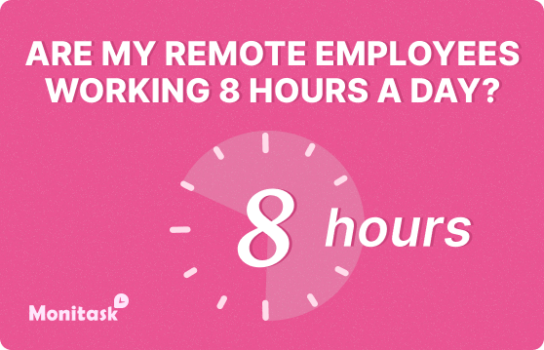Start Date
Understanding the Concept of Start Date in HR
In the realm of Human Resources (HR), the term "Start Date" holds significant importance. It's a crucial piece of information that impacts various aspects of employee management and organizational processes. At its core, the start date refers to the first day an employee officially begins their employment with a company. However, the implications and considerations surrounding this seemingly simple concept are far more complex than one might initially assume.
The start date serves as a pivotal point in the employee lifecycle, marking the transition from candidate to team member. It's the day when an individual steps into their new role, embarking on a journey that could potentially span years or even decades. For HR professionals, understanding the nuances of start dates is essential for effective workforce management, compliance, and fostering positive employee experiences.
The Significance of Start Date in HR Operations
The start date plays a crucial role in numerous HR operations and processes. It serves as a reference point for various administrative tasks, legal obligations, and employee benefits. Here are some key areas where the start date holds particular significance:
1. Payroll and Compensation
One of the most immediate impacts of the start date is on payroll processing. It determines when an employee begins accruing wages and when their first paycheck will be issued. HR and payroll teams must ensure that new hires are promptly added to the payroll system, with their start date accurately recorded to prevent any discrepancies in compensation.
2. Benefits Eligibility
Many employee benefits, such as health insurance, retirement plans, and paid time off, have eligibility periods tied to the start date. For instance, health insurance coverage might begin on the first day of the month following 30 days of employment. HR professionals must carefully track start dates to ensure employees receive their benefits at the appropriate time.
3. Probationary Periods
Some organizations implement probationary periods for new hires, typically lasting 30, 60, or 90 days from the start date. During this time, both the employer and employee assess the fit of the role. HR teams need to monitor these periods closely, scheduling performance reviews and making decisions about continued employment based on the start date.
4. Legal Compliance
The start date is crucial for maintaining compliance with various labor laws and regulations. It affects reporting requirements, such as new hire reporting to state agencies, and ensures proper documentation for employment verification purposes.
Determining the Appropriate Start Date
While the concept of a start date might seem straightforward, determining the most appropriate date requires careful consideration of various factors. HR professionals must balance organizational needs, candidate preferences, and logistical considerations when setting a start date.
Factors Influencing Start Date Selection
- Onboarding schedules: Many companies prefer to align start dates with established onboarding programs or training sessions to ensure new hires receive a comprehensive introduction to the organization.
- Team availability: It's important to consider the availability of key team members, particularly the new hire's direct supervisor, to ensure proper support during the initial days of employment.
- Workload and projects: The start date may be influenced by ongoing projects or seasonal fluctuations in workload, aiming to integrate new employees at optimal times.
- Candidate notice periods: For candidates transitioning from other jobs, their ability to provide adequate notice to their current employer must be taken into account.
- Logistical preparations: Ensuring that necessary equipment, workspace, and access credentials are ready for the new hire may impact the chosen start date.
Best Practices for Managing Start Dates
Effective management of start dates is crucial for creating positive first impressions and setting new employees up for success. Here are some best practices HR professionals should consider:
1. Clear Communication
Ensure that the start date is clearly communicated to all relevant parties, including the new hire, their manager, IT department, and any other teams involved in the onboarding process. This helps prevent confusion and ensures everyone is prepared for the new employee's arrival.
2. Flexibility When Possible
While organizational needs are important, being flexible with start dates when possible can demonstrate consideration for the new hire's circumstances. This flexibility can contribute to a positive first impression and help build goodwill.
3. Preparation and Planning
Use the time between offer acceptance and the start date effectively. Prepare all necessary paperwork, set up workspaces, arrange for equipment, and plan the onboarding process to ensure a smooth transition for the new employee.
4. Pre-boarding Activities
Consider implementing pre-boarding activities in the days or weeks leading up to the start date. This might include sending welcome packages, providing access to company information or training materials, or arranging informal meet-and-greets with team members.
5. Start Date Orientation
Develop a comprehensive orientation plan for the start date itself. This should include a warm welcome, introductions to key team members, an overview of first-week expectations, and any necessary administrative tasks.
Common Challenges Related to Start Dates
While managing start dates is a fundamental HR function, it's not without its challenges. Being aware of potential issues can help HR professionals navigate them more effectively:
1. Last-Minute Changes
Occasionally, circumstances may necessitate changes to an agreed-upon start date. This could be due to unforeseen personal issues for the new hire or sudden changes in organizational needs. HR must be prepared to handle these situations with flexibility and clear communication.
2. Misalignment with Pay Periods
Start dates that fall in the middle of pay periods can create complexities in payroll processing. HR and payroll teams need to ensure systems can accurately prorate salaries and benefits for partial pay periods.
3. Seasonal Considerations
Certain times of the year, such as major holidays or peak business seasons, may not be ideal for new hires to start. HR must balance the urgency of filling positions with the practicality of onboarding during these periods.
4. Group vs. Individual Start Dates
Some organizations prefer to onboard new hires in groups for efficiency, while others favor individual start dates for personalized attention. Balancing these approaches can be challenging, especially in organizations with frequent hiring.
The Impact of Start Date on Employee Experience
The start date is more than just an administrative detail; it plays a significant role in shaping an employee's initial experience with the organization. A well-managed start date can set the tone for a positive and productive employment relationship.
First Impressions Matter
The experience surrounding the start date contributes significantly to the new hire's first impression of the company. A smooth, well-organized start can instill confidence and excitement, while a chaotic or unprepared beginning may lead to doubt and anxiety.
Building Momentum
A thoughtfully planned start date allows new employees to build momentum quickly. By ensuring they have the necessary resources, introductions, and information from day one, organizations can help new hires feel productive and valued from the outset.
Cultural Integration
The start date marks the beginning of an employee's integration into the company culture. How this day is structured and experienced can significantly impact how quickly and effectively a new hire assimilates into the organization's values and ways of working.
Technology and Start Date Management
In the modern HR landscape, technology plays a crucial role in managing start dates effectively. Human Resource Information Systems (HRIS) and applicant tracking systems (ATS) offer features that streamline the process:
Automated Workflows
Many HRIS platforms allow HR teams to set up automated workflows triggered by the start date. This can include sending reminders for onboarding tasks, initiating benefits enrollment processes, and scheduling orientation sessions.
Data Integration
Integrated HR systems ensure that the start date is accurately reflected across various modules, from payroll to benefits administration, reducing the risk of errors and inconsistencies.
Reporting and Analytics
Advanced HR analytics tools can use start date information to generate insights on hiring trends, time-to-productivity metrics, and the effectiveness of onboarding processes.
Legal and Compliance Considerations
The start date has several legal and compliance implications that HR professionals must be aware of:
Employment Verification
The start date is a critical piece of information for employment verification processes, including I-9 forms in the United States. Accurate recording and documentation of start dates are essential for compliance with employment laws.
Benefits Administration
Many benefits-related regulations, such as those governing health insurance offerings under the Affordable Care Act, have timelines tied to an employee's start date. HR must ensure compliance with these regulations when administering benefits.
Labor Law Compliance
Various labor laws, including those related to overtime, minimum wage, and leave entitlements, may have provisions that reference an employee's start date. HR professionals must be familiar with these laws to ensure ongoing compliance.
Start Date in the Context of Remote Work
The rise of remote work has introduced new considerations for managing start dates:
Virtual Onboarding
For remote employees, the start date experience may be entirely virtual. HR teams must adapt onboarding processes to ensure that remote new hires feel welcomed and prepared, even without physical presence in an office.
Time Zone Considerations
With globally distributed teams, start dates may need to account for different time zones. This can affect scheduling of orientation sessions and the timing of system access provisioning.
Equipment Logistics
For remote workers, the start date may be influenced by the logistics of shipping necessary equipment. HR may need to coordinate with IT departments to ensure timely delivery of laptops and other tools.
Conclusion: The Strategic Importance of Start Date Management
In conclusion, the concept of start date in HR extends far beyond a simple calendar entry. It's a critical component of effective workforce management, impacting everything from legal compliance to employee experience. By understanding the multifaceted nature of start dates and implementing best practices in their management, HR professionals can contribute significantly to organizational success and employee satisfaction.
As the workplace continues to evolve, particularly with the increase in remote and flexible work arrangements, the approach to managing start dates must also adapt. HR teams that can navigate these changes while maintaining a focus on both compliance and employee experience will be well-positioned to support their organizations' growth and success.
Ultimately, the careful management of start dates reflects an organization's commitment to its employees from the very beginning of their journey. It sets the stage for a positive, productive, and enduring employment relationship, benefiting both the individual and the organization as a whole.


